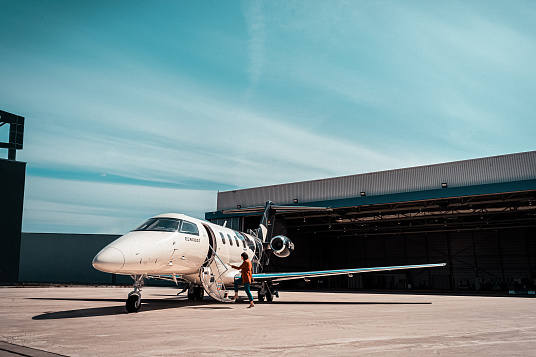How to assess a proposal to buy an aircraft?

How to correctly assess a proposal to buy an aircraft? What should be paid special attention to, and what should be checked additionally? These and many other questions related to the purchase of your aircraft are answered below.
Who usually sells aircraft?
Both the current owners of aircraft — who, as a rule, put them up for sale through brokers — and aircraft manufacturers. The latter have entire divisions for the sale of new aircraft, as well as second-hand ones. Among sellers are also financial companies, banks that own these aircraft, and other persons.
What is the common form potential buyer receives with a proposal to buy an aircraft?
Proposals are usually e-mailed by the seller to the potential buyer as a pdf file or in another format. The file contains photos of the proposed aircraft and brief information about it. Sometimes, the file contains asking price.
What should be stated in the professionally formed proposal to buy an aircraft?
Of course, you should indicate the aircraft's detailed specification, that is, a set of main options with technical and other characteristics, model, year of manufacture, year of delivery and operational history. It is desirable that the proposal should specify the asking price. At the buyer's request, the aircraft's maintenance history should be provided promptly. The speed with which this information is provided and its itemisation are important factors for proposal assessment. The absence of the above data and their late submission should alert the potential buyer.
Which points and details of a proposal should be paid attention to?
First of all, it is worthwhile to pay attention to whether the aircraft is undergoing any maintenance programs. These programs deal with the main components of the aircraft, such as the engine, power structure of the aircraft and air navigation equipment. This information is very important because it has a significant impact on the residual value of the aircraft and the risks associated with its operation. It is necessary to pay attention to the set of technical options of the proposed aircraft because the price of the same model can vary significantly, depending on certain parameters. It is also necessary to carefully check the aircraft's previous operational and maintenance history in order to identify possible nuances.
How to assess the proposed cost?
The proposed cost can be compared with a number of aircraft information bases, where their approximate market value is indicated. Among them is an official guide to business jets, the so-called blue book, which indicates the official residual value of a particular aircraft, depending on its options, serial number, manufacturer, etc. However, to a larger extent, this is always a matter of the buyer's interest.
How to assess the seller?
You should look at each case individually. However, there are main points which allows you to have a first impression. Firstly, you need to assess the information, its type and itemisation provided by the seller. Secondly, it is necessary to check the seller's abilities to defend the interests of the buyer by achieving certain things in the interests of the client, to promptly provide the requested information and promptly respond to changing price parameters and input data that will suit the customer — obviously, within reason. Thus, on the basis of all these factors, it is possible to make a general assessment of the competence of a particular seller.
What other examinations are needed to assess the proposal correctly?
Of course, it is a legal check — preferably, an independent one. It implies checking whether the seller has all the necessary documents for the aircraft, a lack of the security or rights of third parties on the subject of the transaction. Next, it is necessary to carry out an independent technical check, which is performed by a third-party specialist in the interests of the buyer. If any shortcomings are revealed, it is necessary to eliminate them, or a commensurate reduction in the value of the aircraft will be required. As was mentioned earlier, here too, an important point is to check the aircraft's operational history. Of course, buyers can independently carry out all the necessary checks by attracting various specialists. However, the time for such clients is very expensive, and it is inexpedient to waste it on solving administrative and organizational matters. To solve such tasks as aircraft proposal assessment and a legal, technical and financial audit of the particular aircraft, there are professional management companies that will save the buyer time and spare them from the possible difficulties that may arise if something is missed.




